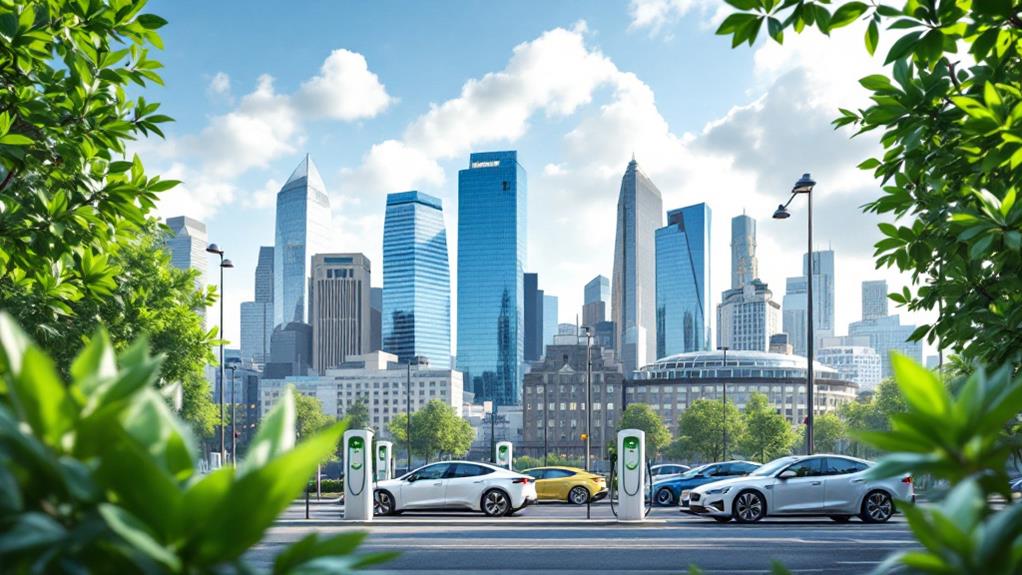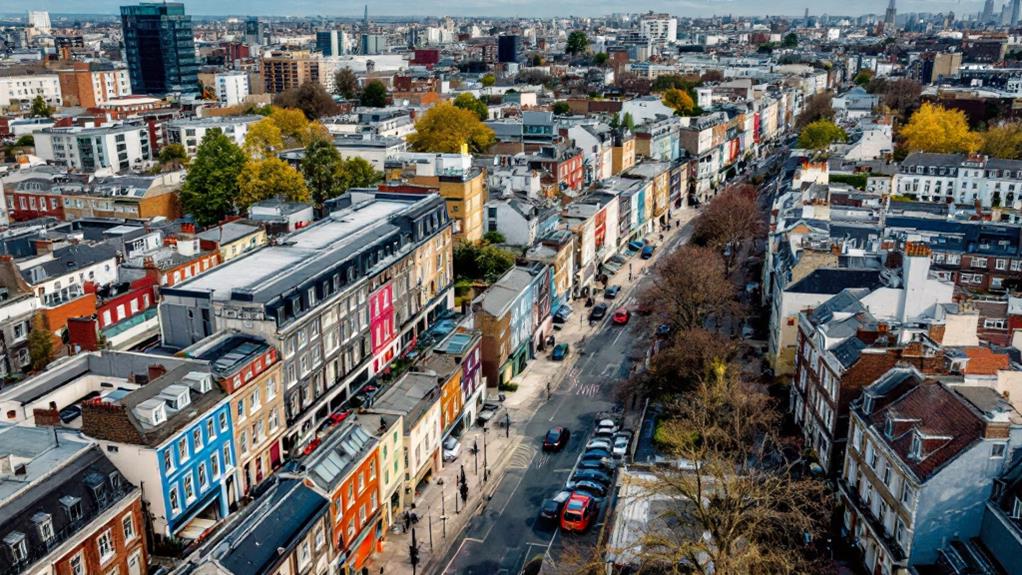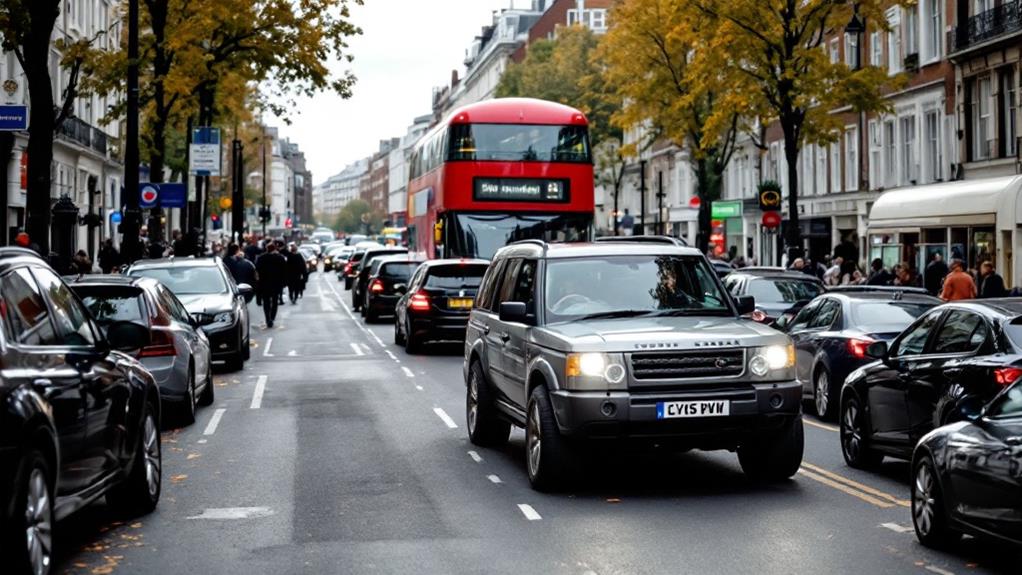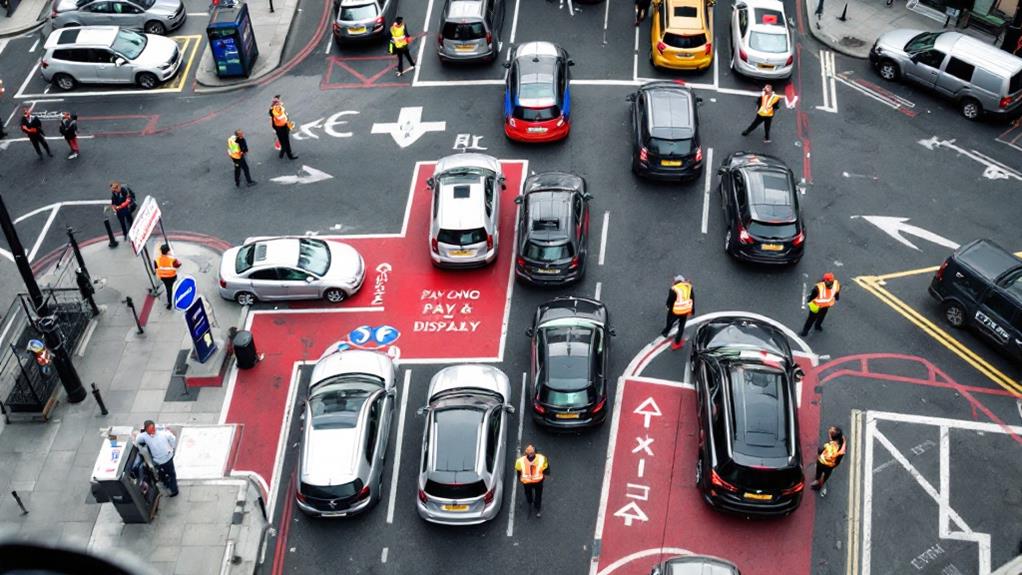The Cost of Parking in London: Is It Worth Having a Car?
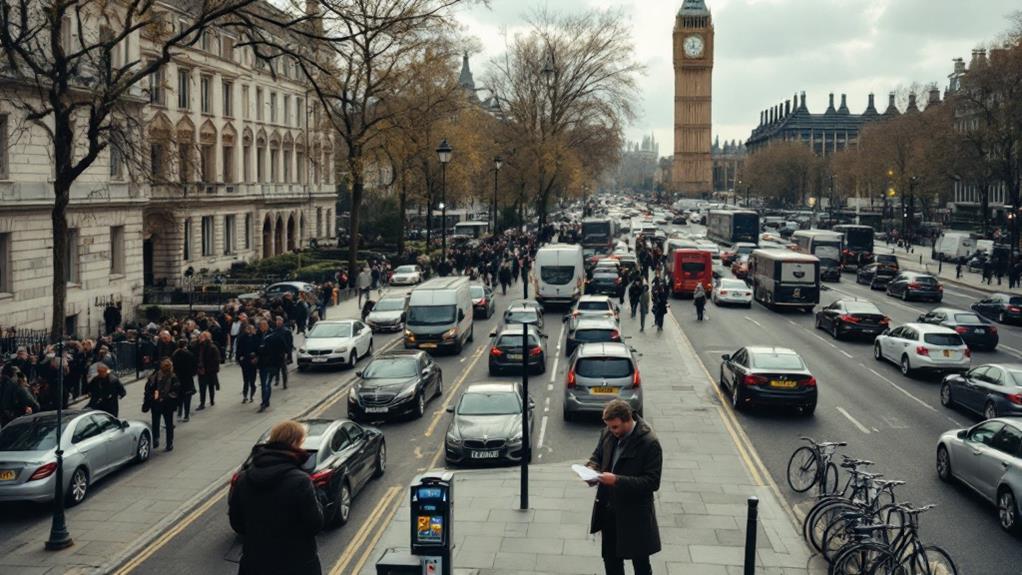
Owning a car in London can be a costly undertaking. You'll face steep parking fees, with central London charging up to £14.49 for just two hours. Add to that the daily Congestion Charge of £15 and the ULEZ charge of £12.50, and your expenses quickly mount. Factor in high insurance premiums, annual vehicle tax, and parking permits, and you might find the convenience outweighed by the financial burden. London's extensive public transport network often provides a more practical alternative. Before deciding to keep your car, carefully weigh the costs against your specific needs and budget. The true price of car ownership in London goes far beyond the initial purchase.
Parking Costs Across London
In the heart of London, parking comes at a premium. If you're contemplating keeping a car in London, be prepared to pay substantially more for parking than you would in other parts of the UK. While the average 2-hour parking cost in England is £3.54, you could be shelling out up to £14.49 for the same duration in central London – that's over three times the UK average.
The expense doesn't stop at public car parks. If you're a resident, you'll need to factor in the cost of parking permits, which vary across London boroughs. These permits can help offset some of the high parking costs, but they're still an additional expense to mull over.
Driving and finding a parking spot in London can be a challenge, especially with the Low Emission Zone and congested streets. Many Londoners find that proximity to public transport is more advantageous than having a car, given the inconvenience and expense of parking.
Before deciding to keep a car in London, weigh the costs of parking against your needs and budget. You might find that alternative transportation options are more practical and cost-effective.
Congestion and Emission Zone Charges
On top of parking costs, London drivers face additional charges designed to manage traffic and reduce pollution. If you're driving around central London on weekdays between 7am and 6pm, you'll find yourself in the Congestion Charge Zone. You'd need to pay the congestion charge of £15 daily to enter this zone.
But that's not all. The Ultra Low Emission Zone (ULEZ) covers all of Greater London and operates 24/7, except on Christmas Day. If your vehicle doesn't meet strict emissions standards, including carbon limits, you'll have to pay an additional £12.50 daily. This applies to cars, motorcycles, vans, and HGVs.
You might think electric vehicles would be exempt, but this won't last forever. While they're currently free from both charges, this exemption ends for electric cars in 2025.
If you find yourself crossing the Dartford between Kent and Essex, you'd pay a £2.50 toll each way for cars. However, you can get discounts if you register an account.
These charges add up quickly, making it essential to evaluate whether you really need to drive and park your car in London.
Alternatives to Car Ownership
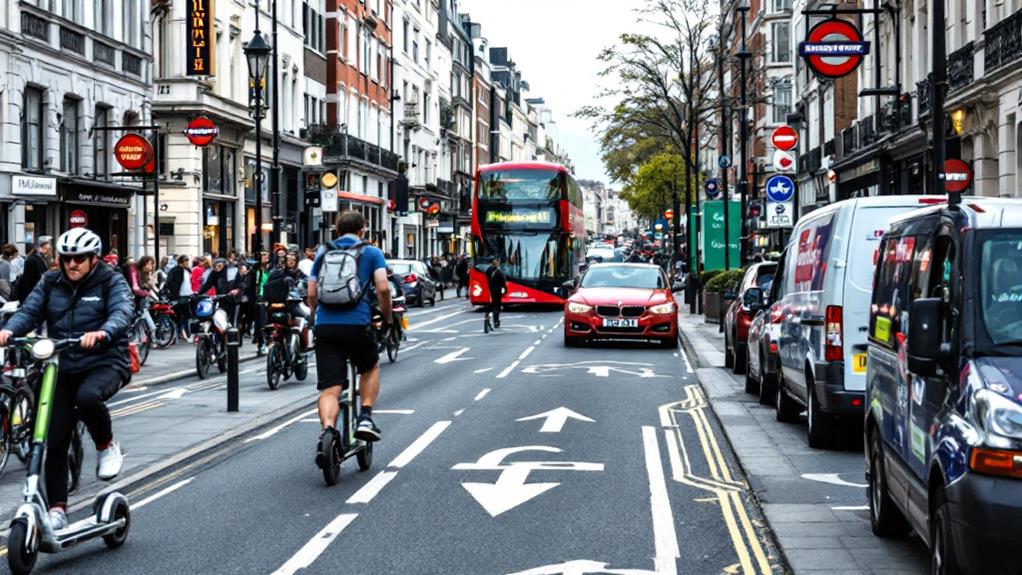
London's public transport network offers a lifeline for those looking to ditch their cars. With an extensive system of buses, trains, and underground lines, you'll find that public transport can effectively replace the need for personal vehicle ownership in many areas of the city. Car-sharing schemes and taxis provide additional flexibility when you need it, without the ongoing costs of car ownership.
Living in well-connected areas with strong public transport links can considerably reduce your reliance on a car. The expenses associated with car ownership, maintenance, and parking in London often outweigh the benefits, making alternatives more appealing. If you occasionally need to drive out of the city, consider renting a garage near a train station. This approach allows you to enjoy the best of both worlds: easy access to a car when needed, without the daily hassles of city driving and parking.
For shorter trips, don't overlook the bicycle as a convenient option. Cycling helps you avoid traffic congestion and parking challenges while providing health benefits. By embracing these alternatives, you can save money and reduce stress associated with car ownership in London.
Hidden Expenses of London Driving
When you consider driving in London, you might think the main costs are fuel and parking. However, there's a significant war waged on your wallet that extends far beyond these obvious expenses. You'll find car ownership in the city comes with a host of hidden costs that can make you question if there's any point in having a vehicle at all.
First, you're hit with higher-than-average insurance premiums, often exceeding £1,500 annually in inner London boroughs. Then, there's the Ultra Low Emission Zone (ULEZ) and Congestion Charge, adding a daily charge of £27.50 for non-compliant vehicles. If you work shifts outside the usual 9-to-5, you might think you're absolutely fine, but these charges apply seven days a week.
Getting a good deal on your car within London doesn't end with the purchase price. You'll face steep annual vehicle tax, costly parking permits, and frequent maintenance. The average annual cost for MOT, servicing, and repairs would only cost £613, but that's assuming everything goes smoothly. With rising fuel costs reaching £1,206 annually, you might find car ownership in London more burden than benefit.
Weighing Convenience Against Costs
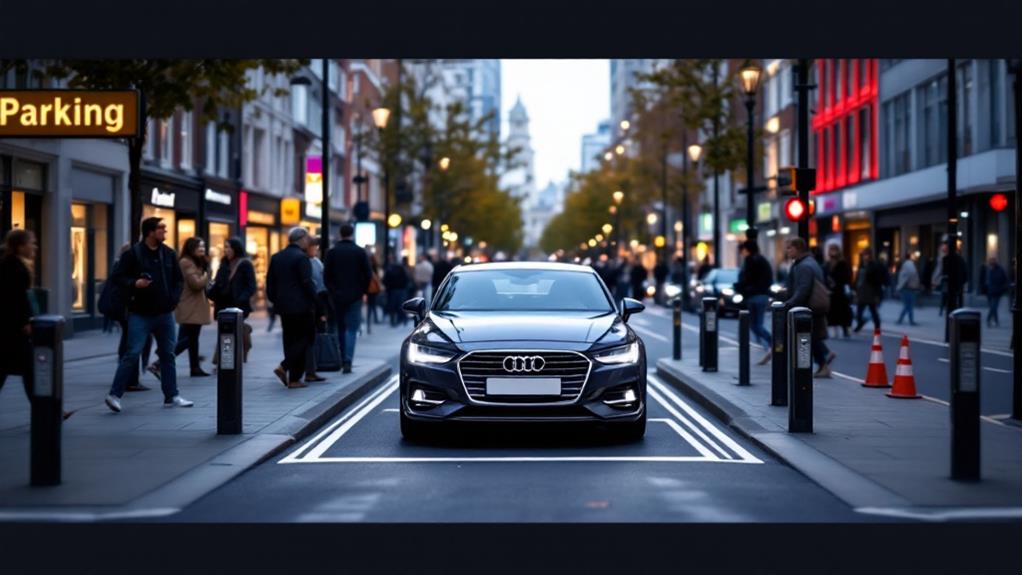
Despite the undeniable convenience of having a car in London, you'll need to carefully weigh this benefit against the steep costs associated with vehicle ownership in the city. Consider your lifestyle and needs before committing to car ownership. If you're not heading out of town every weekend or don't have a young family, alternatives like public transit or car clubs might better suit your needs.
When evaluating the pros and cons, ask yourself:
- How often will you actually use the car?
- Is the flexibility to use your own vehicle worth the hassle of finding parking?
- Are you prepared for the fvcking PITA of getting stuck in worse traffic during rush hours?
If you live in outer London zones, owning a car may be more practical and cost-effective. However, if you're in central London, you'll face exorbitant parking fees, congestion charges, and potential ULEZ costs. The convenience of a spontaneous day trip or weekend getaway might be offset by the frustration of sitting in traffic and struggling to find parking. Ultimately, your decision should balance the desire for personal transportation against the financial and environmental impact of car ownership in London.
